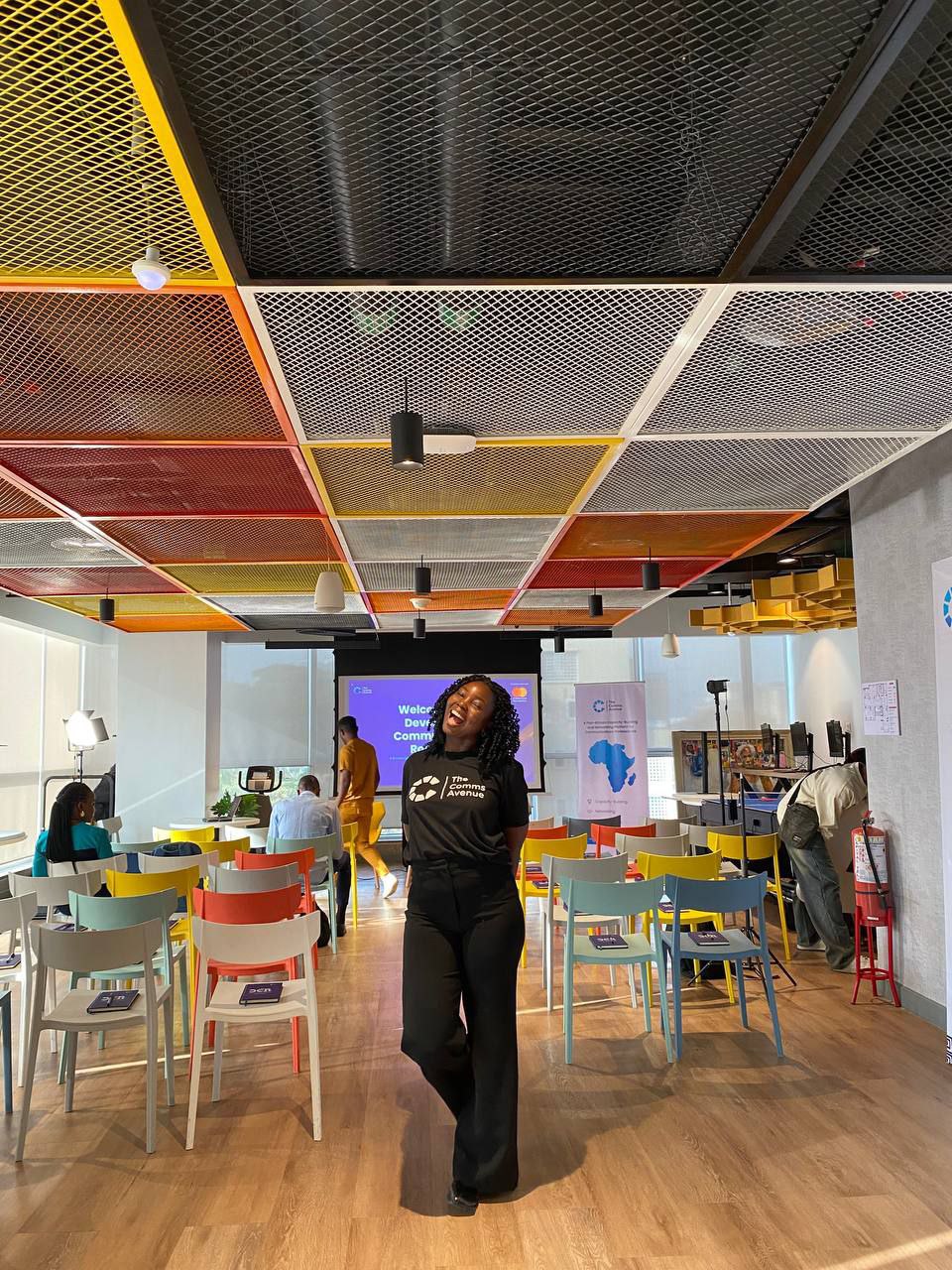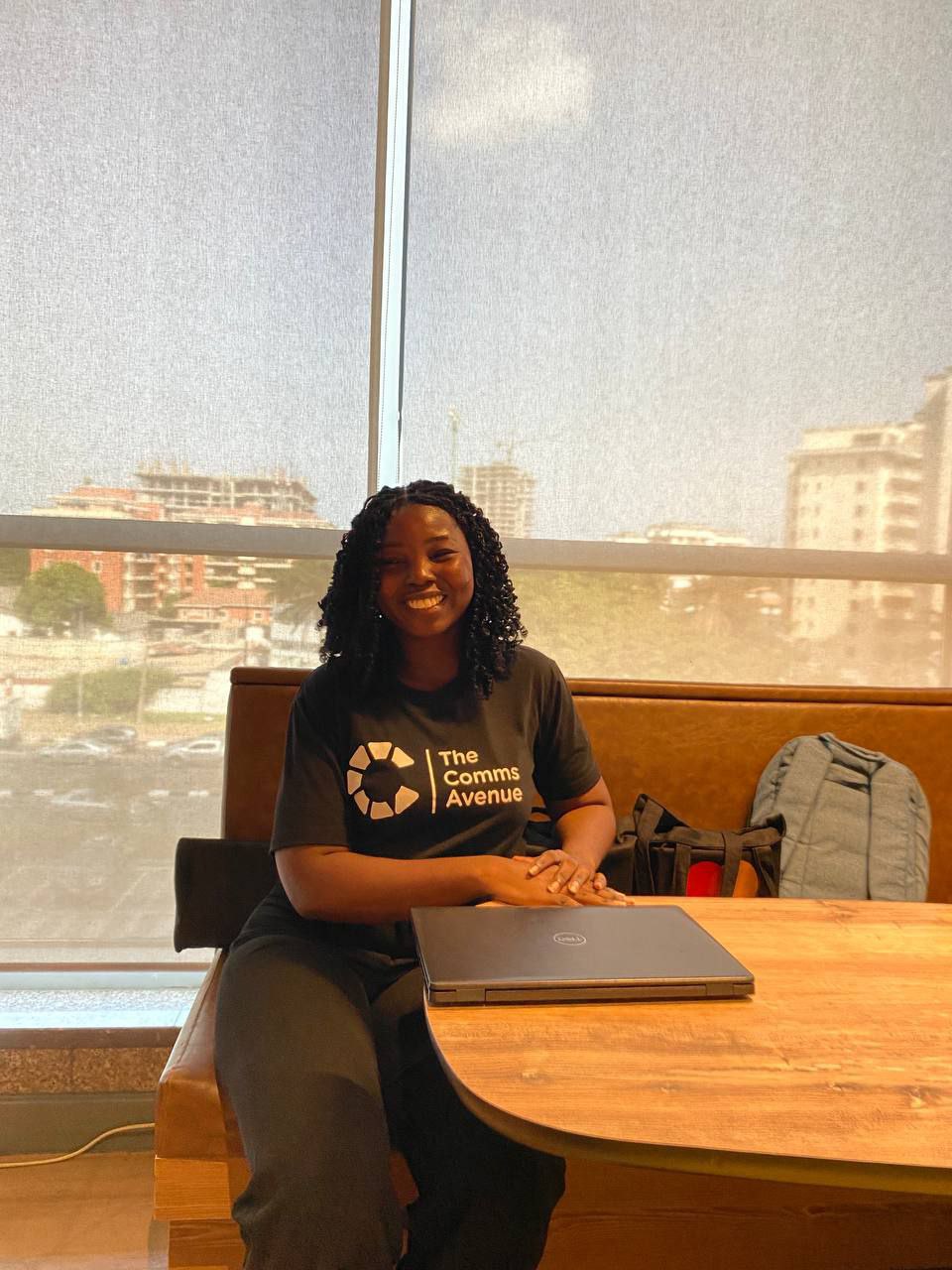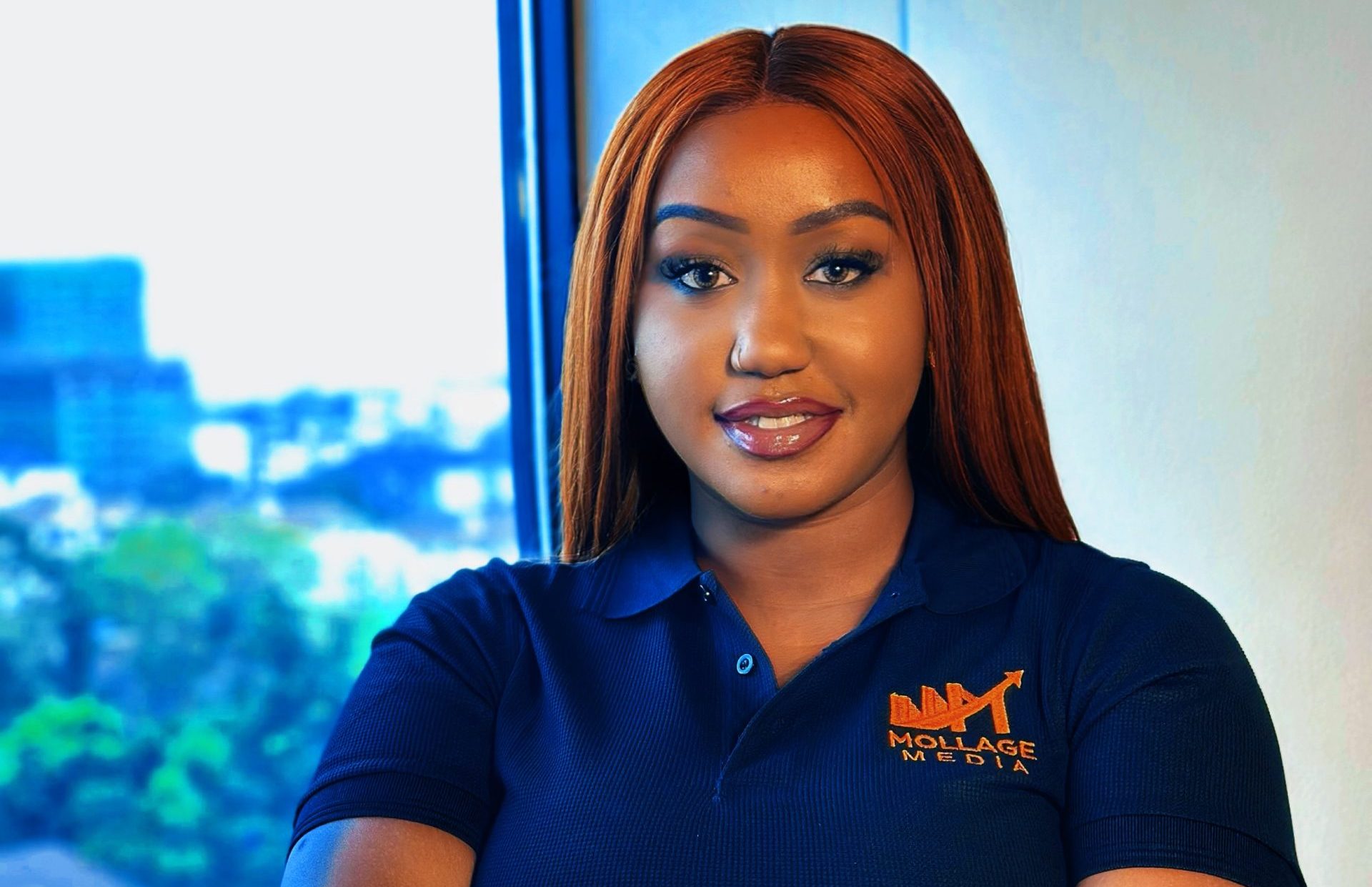Damilola Orenisile is the Comms Officer at The Comms Avenue and the host of Your Friend’s Career Podcast.
I first became aware of my gift for writing when I was in secondary school. I was an art student, and one of my English teachers reached out to me after grading an essay I had written for an assignment. She also exciedly told me that she was going to get the article published in the school magazine.
At the time, I did not understand how important it was that my teacher was so impressed by my article. Regardless, this memory stayed with me and was one of the first pointers I had to embrace writing. And embrace it I did.
In my first year as a university student, I started a blog, which was the first of many, and over the years I have kept journals, written poetry, and kept in touch with the art of writing in one way or another.
When I joined The Comms Avenue, my writing gift was required in a different capacity. While I had built my vocabulary and penmanship with poems and great tales of adventure that can only be found in pages of fiction books, I was now required to write mostly factual pieces for an organisation dedicated to supporting young African communicators.
 I’ll be honest, the switch was exciting but stretching. I had to learn to write even when I did not feel inspired and to write about things I had written about many times before. It’s a journey that has taught me perseverence and consistency. It has also taught me a lot about writing.
I’ll be honest, the switch was exciting but stretching. I had to learn to write even when I did not feel inspired and to write about things I had written about many times before. It’s a journey that has taught me perseverence and consistency. It has also taught me a lot about writing.
The art of writing has evolved over the years. I wonder what it was like for the greats like Shakespeare, C. S. Lewis, Jane Austen, etc. And while I do not have the answer to this, I can tell you what it was like a few years ago.
Back when I first stepped into the world of sharing my opinions online, writing involved research. You had to read books and, later on, scour the internet to find resources relating to what you were writing about. To write one article, you would have to read about four or five, maybe even more. I remember numerous class assignments that had me to holding on to Google like my life depended on it.
However, so much has changed in recent years. The commercialisation and widespread acceptance of generative Artificial Intelligence (AI) models like ChatGPT have changed this process. Today, with a single prompt, you can get a social media caption, an article, an eBook, or even an entire novel.
On the surface, this is revolutionary, and quite so, because when else in the history of humanity has information been so freely accessible and so easily created?
While these tools are touted to offer a simpler approach to writing, coding, and many other tasks required for today’s workplace, they also have given many reasons to not research or conduct due diligence when creating content. As eloquent as these language models are, they are still not a substitute for proper research. AI can fabricate sources, misquote statistics, or present half-truths as fact.AI can also make grammatical or spelling errors.
I am not against the use of AI tools for writing or content creation; I’m only against the use of these tools without reviewing or ‘humanising’ what they have generated. In just a few years, the signs that writing was done with AI have now become very obvious due to a saturation of content of this nature.

There are numerous articles and videos on social media talking about the signs that content is AI-generated. Have you seen text with sentences like, “It’s not just a movement; it’s a revolution”? or “She wasn’t just building a career; she was creating multi-generational impact.”? Yes, AI tends to make a lot of comparisons.
There is also the obvious tell of the “em dash”. They are all over text generated by models like ChatGPT and Gemini. These are some of the tells that have become more widely known. Does this remind you of anything you’ve posted recently?
There’s so much potential to create even better with AI tools. So how can we as comms professionals make the best of it? Here are five mistakes you’re probably making as you write with AI:
1. Your prompts are not detailed enough
A good prompt can take your AI-generated content from generic to amazing. You need to go beyond surface-level information and think of each prompt as an opportunity to teach your AI tool.
You can add details about the target audience, the platform you’re writing for, and the objectives you’re trying to achieve. You can also share links or samples of written articles and ask the AI tool to replicate the tone, style, and any other specific features you want.
I personally prefer to use voice mode with ChatGPT or Gemini, as I’m able to give more details easily when I speak. There are many resources on creating prompts and best practices for prompt engineering. You’d be suprised at how much of a difference it makes. Good prompts produce good content, and great prompts produce great content.

2. You’re not asking the right questions
Do you know that you can ask an AI tool how you should interact with it to achieve your goals? Using AI effectively means you have to be willing to learn from it, and learning requires you to ask the right questions.
You can ask AI how to create prompts that work. You can ask for tips to improve your writing or an audit of your blog. Just ask!
3. You overestimate what AI can do
AI can do many things, but it is not a substitute for human intellect. AI still needs human input to create anything meaningful or impactful. For instance, the content you get from tools like ChatGPT is generated based on the prompt you give. Someone has to give the instruction or the guidelines for AI to act.
It’s best not to rely exclusively on AI tools, especially with things that pertain to fact and sensitive issues. AI uses a broad sweep of global data. Interestingly, this is both its strength and its blind spot. It can flatten cultural nuance, miss tone, and offer clichés where sensitivity or specificity is needed. There are some things you just have to do yourself.
4. You don’t fact-check
There’s a general assumption that everything generated by AI is true because of its polished, authoritative tone when delivering on requests, but this is simply not true.
Recently, there have been quite a few reports, videos, and articles where people expressed their concerns with receiving inaccurate information from generative AI tools.
Again, this is because AI does a sweep of data it has access to and gives you what is most relevant to your prompt. It’s not creating this information or checking to see if it is accurate. You need to do due diligence when using AI-generated content and ensure that you don’t publish false narratives and spread misinformation.
Search engines like Google and Bing still offer great sources on various subjects of interest. They’re not old school!

5. You copy and paste
I’ve recently discovered that AI leaves some hidden characters within your text. This is one of the reasons certain institutions, lecturers, and employers can tell when writing contains AI. AI leaves traces in the text. These hidden characters need certain software to become visible, and you can search the internet for AI checkers. Many of these checkers claim to uncover these hidden characters and then remove them from your text.
This is one layer to it, but beyond this, you need to take what AI gives you and rewrite it to your specific context. The first draft is often wordy and full of sentences that don’t really mean anything to you or to your audience. You need to spend time working on the first draft till you get something good.
Here are some tips that have worked best for me. I start with my ideas and draft some key points, tone, and structure. I then use AI to fill in the middle, to expand or suggest, but not to define my ideas. I also try to research what I don’t know so I know where to start or what I’m missing.
Finally, I rewrite it in my voice. If the draft doesn’t sound like me, I’ll keep working on it until it does. Sometimes, I take more time rewriting than planning the text. Maybe I’m a perfectionist.
There are so many poorly written AI-generated articles and social media posts on the internet today. Let’s not add to as excellent Comms professionals that we are. It is my hope that after reading this, you’ll have a better idea of how to use it to create great content for you and your organisation.





